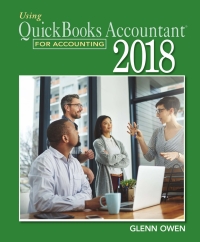3. Which of the following statements is correct? (1 Point) If there is a theory about something, it must be correct It is impossible to assess the appropriateness of a particular theory A theory does not have to be correct to be useful O A theory can only be useful if it is correct Don't know 4. Is it possible to have different theories on the same topic? (1 Point) No, it is impossible to have alternative theories on a topic Yes, there are often many alternative theories on a topic because there are usually many possible explanations and/or solutions Yes, but there is usually only one explanation and/or solution No, there can only ever be one explanation or solution Don't know 3. Which of the following statements is correct? (1 Point) If there is a theory about something, it must be correct It is impossible to assess the appropriateness of a particular theory A theory does not have to be correct to be useful O A theory can only be useful if it is correct Don't know 4. Is it possible to have different theories on the same topic? (1 Point) No, it is impossible to have alternative theories on a topic Yes, there are often many alternative theories on a topic because there are usually many possible explanations and/or solutions Yes, but there is usually only one explanation and/or solution No, there can only ever be one explanation or solution Don't know 11. Which of the following statements is incorrect? (1 Point) Accounting standards are based on normative theories Positive theories are value laden Explaining accounting method choice is an example of a positive theory Normative theories are used to improve accounting practice Don't know 12. Which of the following is a value laden statement? (1 Point) Shareholders have a preference for fair value measurement Most large listed firms publish a CSR report Large firms are more likely to manage their current period profits downwards than small firms Historical cost is a better approach to valuing office buildings than fair value because it is more reliable Don't know 9. Which of the following statements is correct in relation to normative theories? (1 Point) Normative theories often evolve as a result of research performed in relation to positive theories Facts about current accounting practice are not considered in the development of normative theories Normative theories are not likely to evolve from the consideration of positive theories Normative theories always evolve as a consequence or result of positive theories Don't know 10. A theory can be proven to be true: (1 Point) If we are certain there are enough observations that fit or confirm the theory Regardless of how many observations fit or confirm the theory O In some cases, but often there are not enough observations that fit or confirm the theory Under no circumstances, because we can never be certain that enough observations have been made that fit or confirm the theory Don't know 7. Which statement is not true in relation to positive theories? (1 Point) Positive theories are also referred to as predictive theories Positive theories are used to explain and predict phenomena Positive theories are used in empirical research There can only ever be one positive theory to explain a specific phenomenon Don't know 8. A normative theory is one which: (1 Point) Describes or explains what is currently happening Predicts what might happen Prescribes or makes recommendations as to what should happen is often referred to as an empirical theory Don't know 5. Which statement is incorrect in relation to descriptive theories (1 Point) Descriptive theories describe phenomena Descriptive theories reinforce the status quo Descriptive theories are value laden Descriptive theories do not allow for change Don't know 6. Which of the following is an example of a positive theory? (1 Point) Fair value should be used to measure assets in the financial statements, so as to provide more relevant information Cost should be used to measure assets in the financial statements because it is more reliable and accurate The conceptual framework for accounting A theory that explains why managers prefer or choose particular accounting methods or policies over others Don't know












